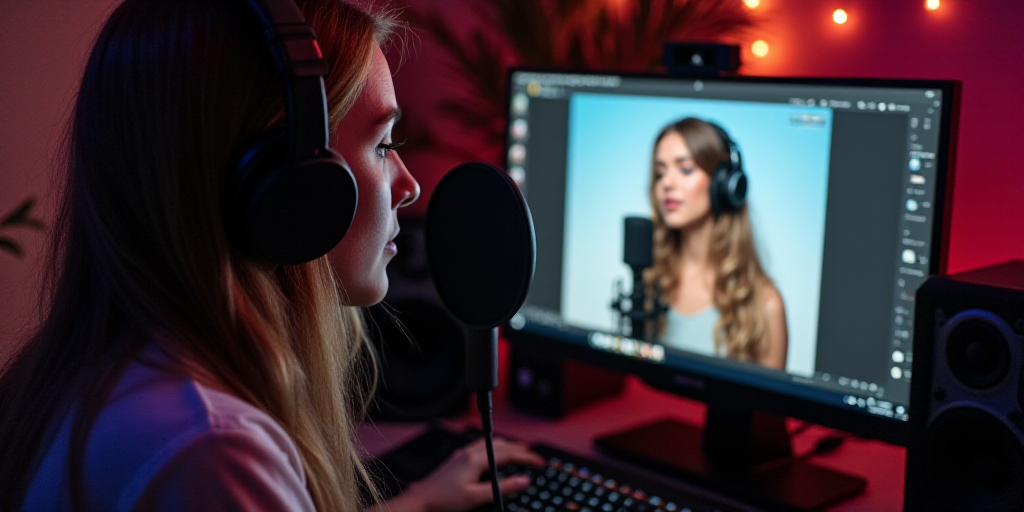Universal LATAM Integrates Visually Impaired Individuals in Professional Dubbing
In a recording studio, where emotions travel through voice and every line must synchronize to the millisecond with the image, a group of actors with visual impairments is changing the game. Universal Pictures Mexico, in collaboration with dubbing directors and specialized studios, has taken an unprecedented step in the industry: including individuals with visual impairments in the dubbing process of their films, starting with the iconic film How to Train Your Dragon.
The Initiative: A Global Perspective
This initiative stemmed from the firm belief that inclusion should not be limited to what is shown on screen. “Stories should be built from diversity,” states the Universal team. Inspired by a global inclusion committee created by NBCUniversal, in Mexico the idea took shape with the founding of a Dubbing Academy designed to train and support talent with visual impairments, with the support of key dubbing figures like Brandon Santini and José Antonio Macías.
Overcoming Challenges
The challenge was not minor. In a precise art like dubbing, adapting processes for those who cannot see the screen required redesigning everything: from direct accompaniment by the dubbing director to specialized auditory training to achieve synchronization between voice and emotion. But beyond the technical aspect, the real change was cultural: demonstrating that there is indeed room for diverse profiles in an industry that has historically been exclusionary.
Training and Success
Through intensive training, participants learned vocal techniques, emotional tone, entry and exit times, and exercises to identify emotions auditively. All under the guidance of experienced inclusive directors, aiming to deliver a professional result, up to the standard of a big-budget production.
Participant Experiences
Axel Villalba, one of the project’s actors, describes his experience as a fulfilled dream. “The fact that my voice is heard on the big screen is fascinating. People with disabilities also want opportunities, and when they are given, we can achieve great things,” he says.
Marco Antonio Martínez shares that participating in a Universal film was “an immense emotion. I didn’t believe it. I feel fortunate to show what I’ve learned.” Ángel González, on the other hand, mentioned that one of the main challenges was learning to identify emotions only through hearing. His preparation included listening to films, analyzing rhythms, and practicing tones to convey complex feelings.
Universal’s Vision
Universal aspires for this initiative not to be an isolated case but the beginning of a profound transformation. “Diversifying who creates content is what truly expands the stories we tell and how we tell them,” states the company. The goal is for this Dubbing Academy to become a reference for the industry, eventually including individuals with motor, intellectual, and other disabilities.
A Message of Empowerment
The message from those who have participated in this experience is clear: there are no limits when there is preparation, support, and will. “Disability is not a limitation,” affirms Villalba. “We can break barriers if given the opportunity and if we also believe in ourselves.”
Key Questions and Answers
- What is the initiative about? Universal LATAM has integrated visually impaired individuals into their professional dubbing process, starting with the film How to Train Your Dragon.
- Why is this important? It’s a step towards broader inclusion in the film industry, proving that diverse profiles can contribute significantly.
- How did they overcome the challenges? By redesigning processes, providing specialized auditory training, and fostering a cultural shift towards acceptance.
- What did the participants learn? They learned vocal techniques, emotional tone control, entry and exit times, and methods to identify emotions auditively.
- What’s Universal’s vision? To make this initiative a model for deeper industry transformation, aiming to include individuals with various disabilities in the future.
- What message do participants convey? Disability is not a limitation; with opportunity and self-belief, barriers can be broken.






